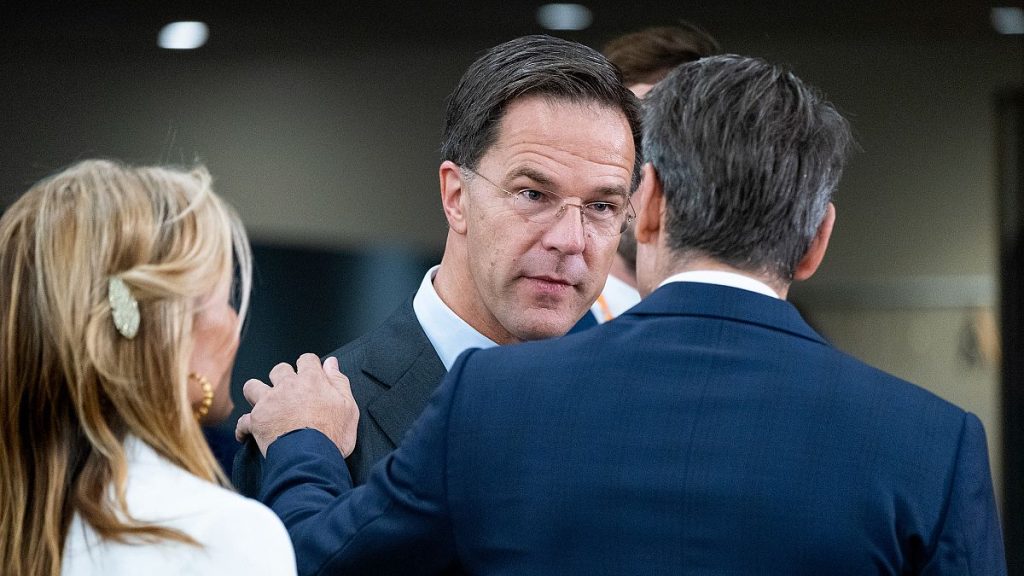Foreign ministers from NATO countries are meeting in Prague to discuss the future leadership of the transatlantic alliance. Norway’s Jens Stoltenberg, the current Secretary General, is due to step down in October. The selection process for the Secretary General involves informal diplomatic channels and consensus among the 32 allies. The role is traditionally held by a European senior political figure for a four-year term. The leading candidate for the position is Mark Rutte, the Prime Minister of the Netherlands, who has gained support from 29 NATO members, including the US. Other candidates such as Romanian President Klaus Iohannis have far fewer backers.
Rutte’s appointment would continue the trend of NATO leaders from northern European countries, following leaders from Norway, Denmark, and the Netherlands. Some concern has been raised about selecting a NATO head who is too anti-Russian, as it could escalate tensions. Rutte’s moderate stance on Russia and support for Ukraine positions him as a candidate who aligns with NATO consensus without risking provocation of Russia. While Rutte seems to be the favorite for the position, there are still three significant holdouts, including Hungarian Prime Minister Viktor Orbán, who prefers an eastern candidate.
Despite Rutte’s popularity, there are still obstacles to his appointment, including the opposition of key NATO members like Hungary and Slovakia. Hungarian Foreign Minister Péter Szijjártó has confirmed that Hungary will not support Rutte’s candidacy. The decision on the Secretary General is unlikely to be resolved at the Prague meeting and may need to be addressed at the NATO Summit in Washington, DC in July. Other EU top jobs decisions, such as the leadership of the European Commission, may impact the selection process. The results of the US elections in November could also have a significant impact on the transatlantic alliance.
The selection of the new NATO Secretary General is a crucial decision as the alliance faces challenges from an increasingly belligerent Russia and the possibility of a second term for US President Donald Trump. Rutte’s candidacy has garnered significant support but is still facing opposition from key members like Hungary and Slovakia. The decision on the new Secretary General may be postponed until after the European elections in June, and side-deals struck in EU summits could help resolve the impasse. The fate of the transatlantic alliance remains uncertain, with concerns about Trump’s calls for increased military spending from allies and his controversial statements regarding Russia.


